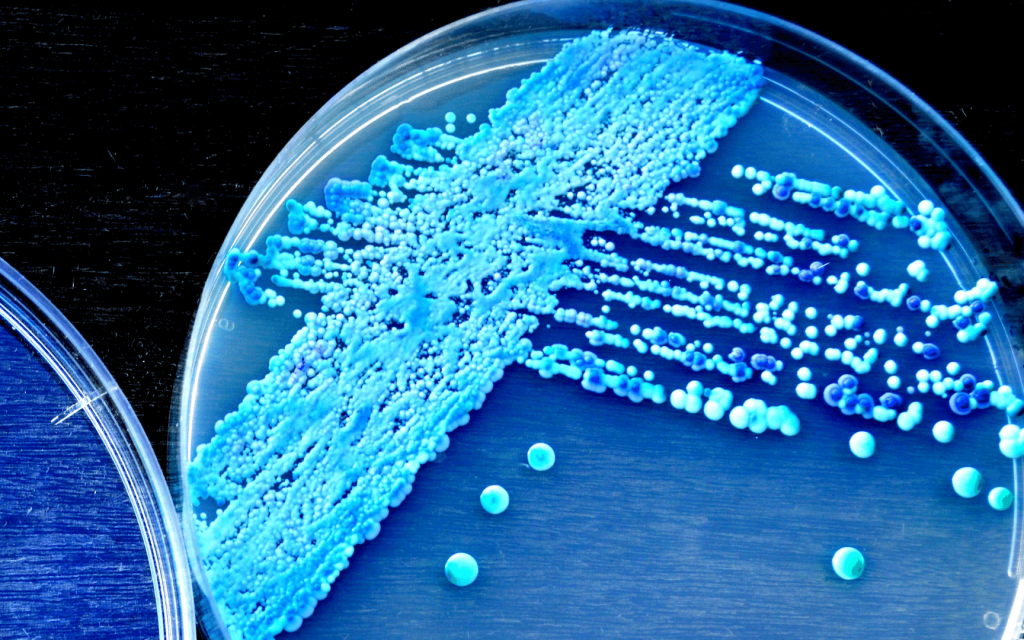
Why Do I Have So Many Food Sensitivities?

Do you suffer from any of the following symptoms?
| Digestive Problems | Mental Health Issues | Metabolic And Energy Production | Pain Disorders |
| Gas Bloating Belching Constipation DiarrheaIBS |
Brain fog Anxiety Depression Mood swings Psychosis Insomnia and poor sleep quality |
Fatigue Inability to regulate blood sugar Inability to lose excess fat or gain muscle mass |
Headaches and migraines Fibromyalgia Joint and muscle pain Arthritis |
| Nutrient Deficiencies | Allergy And Autoimmunity | Skin Problems | Hormonal And Reproductive Health |
| Stubborn iron-deficiency anemia that doesn’t respond to iron supplements Inability to increase vitamin D Loss of bone mass, leading to osteopenia and osteoporosis |
Allergic rhinitis Asthma Inflammatory bowel disease Hashimoto’s Multiple Sclerosis Lupus Type 1 diabetes |
Eczema Hives Psoriasis Acne |
Infertility Painful menstrual symptoms |
These are not an exhaustive list, but if you’re suffering from these health issues, it may be because of inflammation arising from foods. And while inflammation from food might not be the only cause, it can be a key contributor.
Remember that food allergies, intolerances, and sensitivities are typically symptoms of deeper underlying problems. These are neither normal nor healthy. And in many cases, simply avoiding inflammatory foods may not fix the root causes.
Here are a few common dysfunctions that contribute to food allergies, intolerances, and sensitivities:
1. Intestinal Permeability (a.k.a. Leaky Gut)
A leaky gut is when undigested food particles can pass your intestinal tract and enter your bloodstream. It means you’ve got holes in your gut. The gut lining (mucosal barrier) consists of a single cell layer and the mucus covering it. The barrier separates the gut immune system and the gut content. Between the gut lining cells are proteins that zip the cells together, such as tight junctions, desmosomes, and adherens junctions.
Your gut lining is naturally permeable to allow the absorption of some nutrients. Substances and nutrients can get transported between the cells or across the cells.
How To Know If You Have Intestinal Permeability
- You have some symptoms or health issues listed at the beginning of this article.
- One of the following lab tests that may indicate intestinal permeability:
- Secretory IgA (sIgA) is an important antibody produced in the gut. Having elevated or low SigA in the saliva or stool, especially in foods, indicates problems with the gut lining.
- Elevated IgG in many foods is a sign that your immune system is exposed to the content of your gut lining.
- Lactulose-mannitol test. Mannitol is a smaller sugar molecule that is readily absorbed. Whereas lactulose is a larger molecule, so its presence of it in the bloodstream means that the gut is leaky. Elevated ratios of lactulose to mannitol can indicate a leaky gut.
- Elevated blood LPS indicates that the gut barrier allows the LPS to translocate through it.
- Elevated zonulin shows that tight junctions may open up through the zonulin pathway. Zonulin can be a marker of Celiac disease and non-Celiac gluten sensitivity, especially when they’re actively consuming gluten. We suggest getting a Zonulin test to get a baseline.
Causes Of Leaky Gut
There are many different ways people can get a leaky gut, including: including:
- Disruption of tight junctions from Inflammatory foods such as gluten
- Cellular death (apoptosis) and ulcers, such as in IBD and Celiac disease
- By translocation of bacteria or bacteria toxins, such as lipopolysaccharides (LPS)
- Extended fasting and then not properly rebuilding a healthy biofilm post-fast
- Major illnesses, injuries, and surgeries
- Medications include non-steroidal anti-inflammatory drugs and proton-pump inhibitors
- High-fat and high-sugar meals
- Lack of dietary fibers and polyphenols
- Deficiencies in nutrients that are important for mucosal barrier function, such as vitamins A and D, and zinc
- Dysbiosis and gut infections
A leaky gut alone is not a disease. Most people’s gut linings open up multiple times a day before resealing and bouncing back with no problem. It only becomes problematic when the gut lining fails to heal and the immune system sustains the inflammation. Our answer to leaky gut is called Biome Breakthrough, along with diet and lifestyle changes to address the causes above.
2. Reduced Immune Tolerance And Increased Inflammatory Tendency

A healthy immune system should be able to ignore harmless antigens such as foods, dust, pollens, and proteins. Most people tolerate many foods and environmental allergens without developing allergies, autoimmunities, or food-related inflammation. However, those with weaker immune systems find their bodies reacting.
Your immune system has many checks and balances to ensure you tolerate your foods and don’t develop autoimmune diseases. Food-related inflammation indicates that some of the following 3 processes are breaking down.
Check & Balance #1: Killing And Deactivating Budding Autoimmune Cells
As white blood cells develop in your thymus and bone marrow, your immune system eliminates the young white blood cells that attack your tissues. Even when you have antibodies against your tissues or foods, it rarely becomes a problem.
Check & Balance #2: Not Mounting An Immune Response Even Though You Have Antibodies
Having antibodies against foods or your tissues rarely leads to autoimmune diseases.
For example, about 8.5% of men and 16% of women have thyroid peroxidase (TPO) antibodies. This suggests that most TPO antibodies don’t interfere with thyroid function or trigger the immune system to destroy the thyroid tissues.
Similarly, in a study of 500 healthy subjects without autoimmune diseases, 8-15% had antibodies against common food lectins. Test tube assays found that some of these antibodies can bind to proteins of human tissues.
Now, this doesn’t mean you don’t have to be concerned if you have antibodies—you’re at a higher risk, and you should proactively monitor your autoimmune markers. However, remember that you also have the power to improve your immune balance through your epigenetic activation and boosting your microbiome health.
Check & Balance #3: Your Immune System’s Zenmaster - Regulatory T Cells
Regulatory T cells (Treg) are present in your bloodstream and tissues. They ensure your immune system ignores the harmless antigens, preventing allergies and autoimmunity. Also, Treg ensures that inflammation resolves after an infection or episode of inflammation.
Treg cells help ensure you don’t react to all your foods and bacteria in your gut.
Even if you have a leaky gut, Treg cells calm the immune response and make sure you don’t react to the foods. This allows your gut lining to reseal itself.
If you’re suffering from symptoms of chronic inflammation or getting inflammation from foods, you have Treg dysfunction.
Also, you can’t just increase Treg to eat whatever you want. Excessive Treg activity can suppress immune responses that prevent cancers, possibly allowing cancers to develop.
3. Stress And Traumas

Stress, past traumas, and recent traumatic experiences can cause multiple whammies, leading to food sensitivities. Chronically elevated levels of stress can wreak havoc on the digestive system. One of Matt’s clients, Juan B, shares his story. “I was going through some extremely difficult times in my life and struggling to digest food. My gut biome was turned upside down. Sometimes, I had diarrhea, and other times I was constipated. Seeing these symptoms disappear once the stress was gone was amazing.”
It causes a leaky gut and keeps your body in a state that cannot effectively repair a leaky gut. You must be in a parasympathetic state for your body to heal. If you’re constantly in “fight, flight, and freeze,” your body’s natural abilities to repair itself become compromised.
Chronic stress also increases corticotropin-releasing hormone (CRH), a highly inflammatory stress hormone that increases leaky gut and immune reactivity. Elevated CRH also throws off gut bacteria.
Many people with food-related inflammation also benefit from neuronal rewiring practices, such as Dynamic Neural Retraining System, meditation, and neurofeedback.
4. Molecular Mimicry
Molecular mimicry is when an outside protein has sections similar to your proteins. When the immune system develops antibodies or immune cells against these sections of proteins, it can lead to autoimmune diseases.
These outside proteins can come from foods or infections. However, eating molecular mimicry foods or having antibodies against them rarely leads to autoimmune diseases. For an autoimmune disease to occur due to molecular mimicry, four things need to be happening:
- Low stomach acid and poor digestion, especially incomplete protein digestion. This tends to be the case with proteins that are hard to digest, such as lectins, gluten, and casein.
- Leaky gut, which allows the gut content to meet the immune cells.
- Environmental triggers such as infections, stress, or toxic exposure cause the immune system to be on high alert.
- Loss of immune tolerance or the breakdown of the immune system’s ability to ignore these self-attacking immune responses.
You can have genetic predispositions for a leaky gut, an overactive immune system, and loss of immune tolerance. However, remember that your epigenetics, gut flora, and lifestyle can contribute to any of the four factors. Having a healthy gut flora protects against all four of these factors.
If you already have an autoimmune diagnosis, it’s worth working with a practitioner to determine if you have ongoing molecular mimicry in your body. See a practitioner for a blood test, such as Cyrex, to find these antibodies against common foods. Then, eliminate the foods to see if your symptoms or autoimmune markers improve.
| PowerMoves: If you don’t have an autoimmune condition, optimizing your gut health allows you to enjoy all the foods while minimizing the chance of developing food-related inflammation. If you have an autoimmune condition, it becomes even more important to optimize your gut and your gut flora health as part of your overall health plan. These alone won’t cure the autoimmune condition, however. Use HCL Breakthrough to support healthy stomach acid levels MassZymes to ensure optimal protein digestion Gluten Guardian to ensure digestion of gluten and casein Microbiome Breakthrough to support and heal the gut lining |
5. Toxic Exposure, Such As Mycotoxins

A 1994 Lawrence Berkeley National Laboratory study found that about 47% of homes and 85% of commercial buildings have water damage and mold. mold toxicity has become much more common.
Mold Toxins (mycotoxins) can activate mast cells and make your immune system more reactive to many things. It can also tip the immune system toward allergies and intestinal permeability. If you start developing symptoms or become sensitive to many foods after being in a new environment, you should see a practitioner to investigate mold toxicity.
Aside from environmental mold exposure, foods can also be a source of mold toxins. Grains, nuts, fruits, cacao, alcoholic drinks, and meat fed with moldy crops can also be a source of mold toxin exposure.
Conclusion
In conclusion, the combination of leaky gut, loss of immune tolerance, stress, traumas, and toxic exposures can cause you to develop inflammatory reactions to food. If you have many food sensitivities and your list of inflammatory foods keeps growing, it’s time to investigate these causes.
References
- Farré R, Fiorani M, Abdu Rahiman S, Matteoli G. Intestinal permeability, inflammation and the role of nutrients. Nutrients. 2020;12(4):1185. doi:10.3390/nu12041185
- Ordiz MI, Davitt C, Stephenson K, et al. EB 2017 Article: Interpretation of the lactulose:mannitol test in rural Malawian children at risk for perturbations in intestinal permeability. Exp Biol Med (Maywood). 2018;243(8):677-683. doi:10.1177/1535370218768508
- Fasano A, Not T, Wang W, et al. Zonulin, a newly discovered modulator of intestinal permeability, and its expression in coeliac disease. Lancet. 2000;355(9214):1518-1519. doi:10.1016/S0140-6736(00)02169-3
- Barbaro MR, Cremon C, Morselli-Labate AM, et al. Serum zonulin and its diagnostic performance in non-coeliac gluten sensitivity. Gut. 2020;69(11):1966-1974. doi:10.1136/gutjnl-2019-319281
- Camilleri M. Leaky gut: mechanisms, measurement and clinical implications in humans. Gut. 2019;68(8):1516-1526. doi:10.1136/gutjnl-2019-318427
- Suzuki T. Regulation of the intestinal barrier by nutrients: The role of tight junctions. Anim Sci J. 2020;91(1):e13357. doi:10.1111/asj.13357
- Sykes M. Immune tolerance: mechanisms and application in clinical transplantation. J Intern Med. 2007;262(3):288-310. doi:10.1111/j.1365-2796.2007.01855.x
- Amouzegar A, Gharibzadeh S, Kazemian E, Mehran L, Tohidi M, Azizi F. The prevalence, incidence and natural course of positive antithyroperoxidase antibodies in a population-based study: Tehran Thyroid Study. PLoS One. 2017;12(1):e0169283. doi:10.1371/journal.pone.0169283
- Vojdani A, Afar D, Vojdani E. Reaction of lectin-specific antibody with human tissue: Possible contributions to autoimmunity. J Immunol Res. 2020;2020:1438957. doi:10.1155/2020/1438957
- Vignali DAA, Collison LW, Workman CJ. How regulatory T cells work. Nat Rev Immunol. 2008;8(7):523-532. doi:10.1038/nri2343
- Harrison OJ, Powrie FM. Regulatory T cells and immune tolerance in the intestine. Cold Spring Harb Perspect Biol. 2013;5(7):a018341-a018341. doi:10.1101/cshperspect.a018341
- Togashi Y, Shitara K, Nishikawa H. Regulatory T cells in cancer immunosuppression – implications for anticancer therapy. Nat Rev Clin Oncol. 2019;16(6):356-371. doi:10.1038/s41571-019-0175-7
- Fisher SA, Rahimzadeh M, Brierley C, et al. The role of vitamin D in increasing circulating T regulatory cell numbers and modulating T regulatory cell phenotypes in patients with inflammatory disease or in healthy volunteers: A systematic review. PLoS One. 2019;14(9):e0222313. doi:10.1371/journal.pone.0222313
- Bollinger T, Bollinger A, Skrum L, Dimitrov S, Lange T, Solbach W. Sleep-dependent activity of T cells and regulatory T cells. Clin Exp Immunol. 2009;155(2):231-238. doi:10.1111/j.1365-2249.2008.03822.x
- de Punder K, Pruimboom L. Stress induces endotoxemia and low-grade inflammation by increasing barrier permeability. Front Immunol. 2015;6:223. doi:10.3389/fimmu.2015.00223
- Kelly JR, Kennedy PJ, Cryan JF, Dinan TG, Clarke G, Hyland NP. Breaking down the barriers: the gut microbiome, intestinal permeability and stress-related psychiatric disorders. Front Cell Neurosci. 2015;9:392. doi:10.3389/fncel.2015.00392
- Cusick MF, Libbey JE, Fujinami RS. Molecular mimicry as a mechanism of autoimmune disease. Clin Rev Allergy Immunol. 2012;42(1):102-111. doi:10.1007/s12016-011-8294-7
- Vojdani A. Antibodies as predictors of complex autoimmune diseases. Int J Immunopathol Pharmacol. 2008;21(2):267-278. doi:10.1177/039463200802100203
- Untersmayr E. The influence of gastric digestion on the development of food allergy. Rev Fr Allergol (2009). 2015;55(7):444-447. doi:10.1016/j.reval.2015.09.004
- Vojdani A. Lectins, agglutinins, and their roles in autoimmune reactivities. Altern Ther Health Med. 2015;21 Suppl 1:46-51.
- Monetini L, Cavallo MG, Manfrini S, et al. Antibodies to bovine beta-casein in diabetes and other autoimmune diseases. Horm Metab Res. 2002;34(8):455-459. doi:10.1055/s-2002-33595
- Mu Q, Kirby J, Reilly CM, Luo XM. Leaky gut as a danger signal for autoimmune diseases. Front Immunol. 2017;8:598. doi:10.3389/fimmu.2017.00598
- Rosenblum MD, Remedios KA, Abbas AK. Mechanisms of human autoimmunity. J Clin Invest. 2015;125(6):2228-2233. doi:10.1172/JCI78088
- Zhang P, Lu Q. Genetic and epigenetic influences on the loss of tolerance in autoimmunity. Cell Mol Immunol. 2018;15(6):575-585. doi:10.1038/cmi.2017.137
- Bedard M. Over 50% of U.s. homes and 85% of commercial buildings have water damage and mold. Mold Safe Solutions | Mold Removal Company. Published April 27, 2016. Accessed November 5, 2022. https://moldsafesolutions.com/over-50-of-u-s-homes-and-85-of-commercial-buildings-have-water-damage-and-mold/
- Kritas SK, Gallenga CE, D Ovidio C, et al. Impact of mold on mast cell-cytokine immune response. J Biol Regul Homeost Agents. 2018;32(4):763-768. Accessed November 5, 2022. https://pubmed.ncbi.nlm.nih.gov/30043558/
- Alassane-Kpembi I, Pinton P, Oswald IP. Effects of mycotoxins on the intestine. Toxins (Basel). 2019;11(3):159. doi:10.3390/toxins11030159
- Cinar A, Onbaşı E. Mycotoxins: The hidden danger in foods. In: Sabuncuoğlu S, ed. Mycotoxins and Food Safety. IntechOpen; 2020
